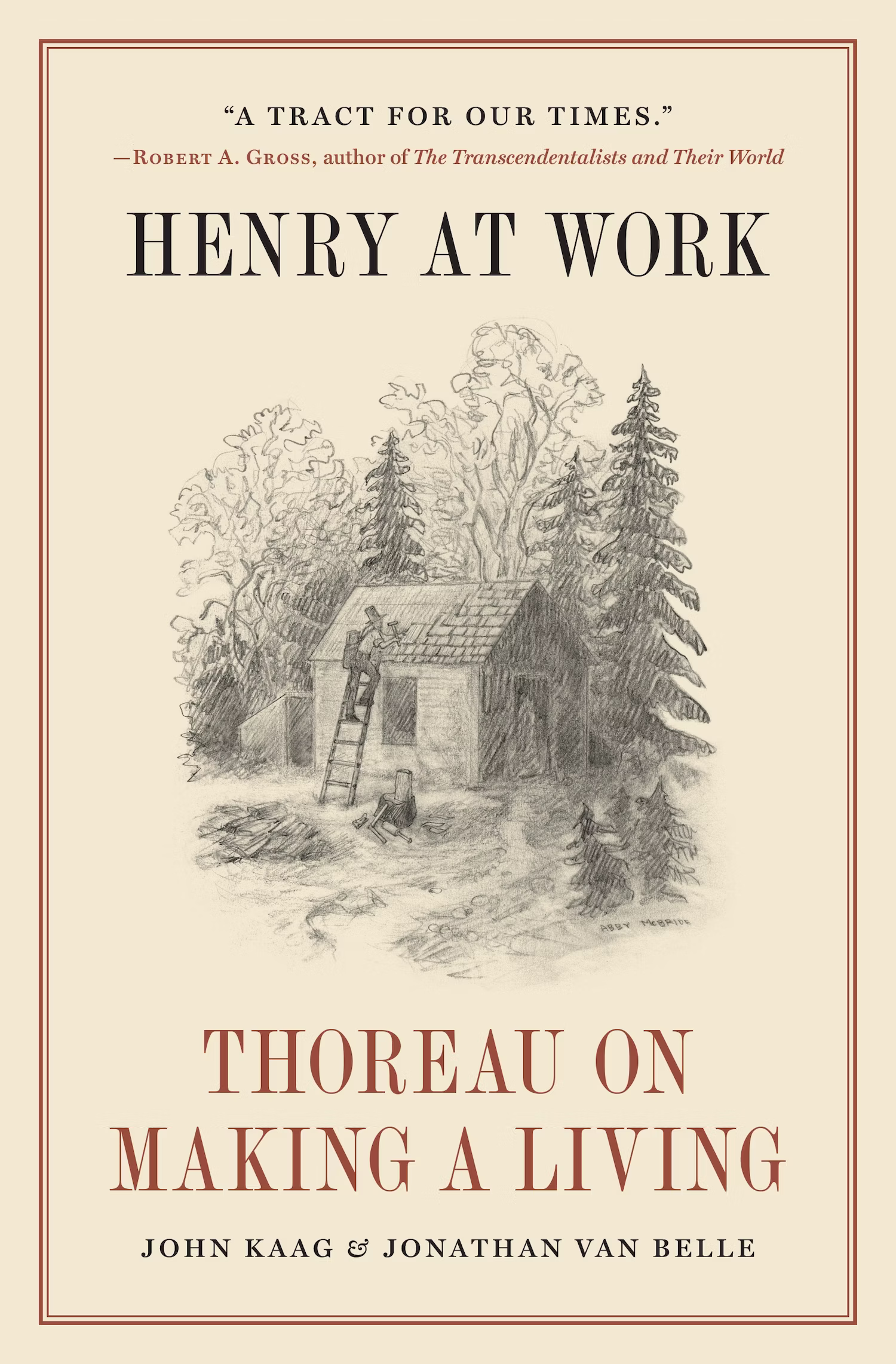Kaag and van Belle are motivated in part by what they feel is the need to rehabilitate Thoreau’s reputation. Even Thoreau’s closest friends thought he was a slacker. In a eulogy, his mentor and rival Ralph Waldo Emerson claimed that the younger man, dead from tuberculosis at age 44, “had no ambition. Wanting this, instead of engineering for all America, he was the captain of a huckleberry-party.” The charge has stuck ever since. The consensus today is that Thoreau was an indolent adolescent who played at self-reliance while his mother did his laundry.
To Kaag and van Belle, Thoreau was instead “the consummate worker,” diligent in his crafts. As they note, he was a schoolteacher, a pencil maker, an inventor, a surveyor, a carpenter, a field researcher, a bean hoer, and, of course, a writer and orator. He had “as many trades as fingers,” he wrote of himself in Walden. Kaag and van Belle praise his earthy “Virgilian work ethic,” writing that he “sought to become a working model-in-miniature of a great nation, meaning a just and heroic nation, whose free and independent citizens love the land, their work, and their days—a nation of people who, at last, feel at home on the earth.”
Independent, yes. Work loving, no. If Thoreau has a reputation for being suspicious of work, it is well earned. In Walden and elsewhere, he is a relentless critic of common ways of working and anything but an apologist for the supposed virtues of agriculture or the skilled trades. “Thoreau’s two-year stint at Walden demonstrated that only through manual work could a man or woman reestablish his or her place in the natural order of things,” Kaag and van Belle write. But it was his solitude in nature, not his work, that prompted Thoreau to ask, “Shall I not have intelligence with the earth? Am I not partly leaves and vegetable mould myself?” At the same time, recognizing that a too-close relationship with the land beneath one’s feet could turn into blinkered nationalism, Thoreau complained that many of his contemporaries “love the soil which makes their graves, but have no sympathy with the spirit which may animate their clay. Patriotism is a maggot in their heads.”
With the life he sketches in Walden, Thoreau shatters our conceptions of work’s proper role in life. Leisure—whether standing in a doorway, contemplating a sandbank, or watching two ants fight—looks, to the industrious mind, like loafing. Thoreau shows that, from a higher perspective, spending time this way might be what life is for. His neighbors in Concord would accuse him of laziness, “but if the birds and flowers had tried me by their standard, I should not have been found wanting.”

